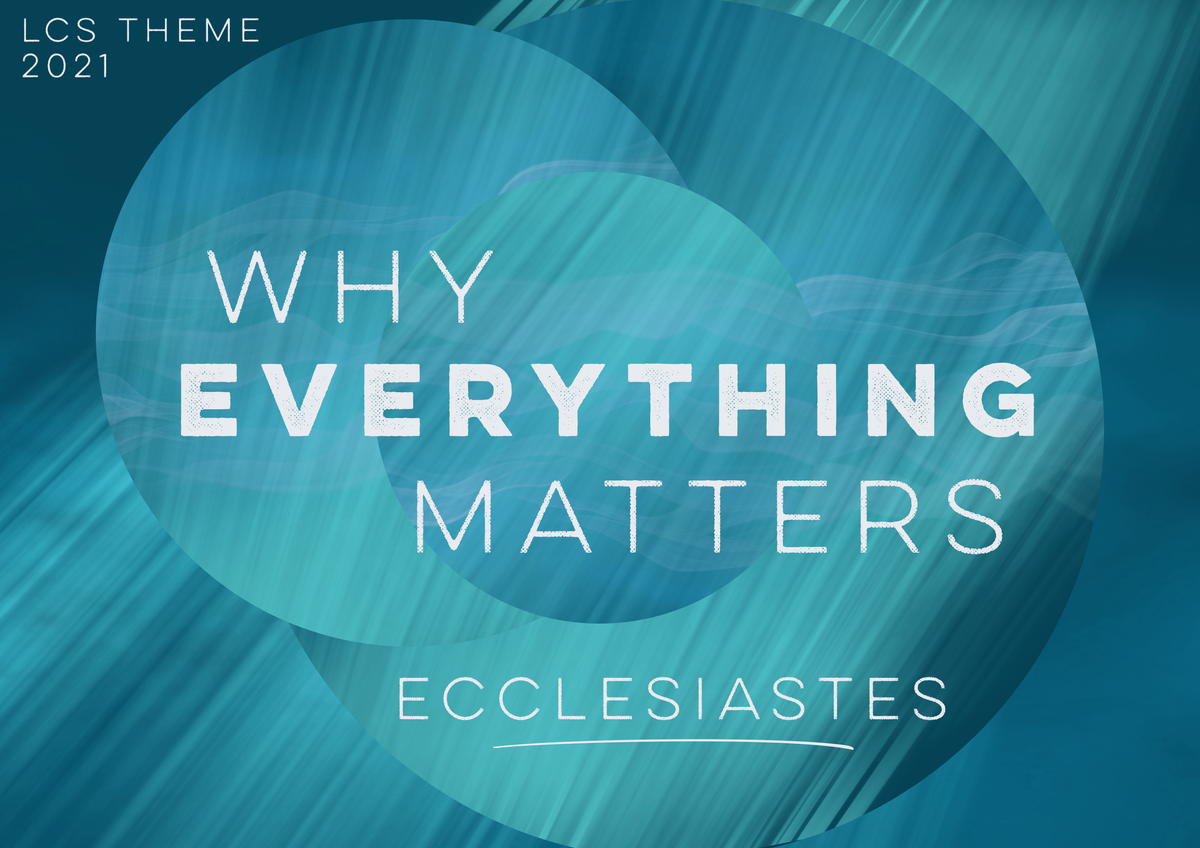From the Principal

Welcome to 2021!
We warmly welcome all our new staff and students to our school community. LCS now employs 121 staff to run our school - what an amazing figure compared to when we opened our doors in 1976 with 37 students and 2 teachers. In our news section of this Herald you'll get to know some of our new teaching and aide staff who have just started or returned to LCS this year. I encourage you to take the time to say hello as they settle into their class routines.
Each year we also enrol many new students and it's wonderful to have 98 new students attending our school in 2021. Here's the breakdown: Kinder (42), Prep (4), Year 1 (1), Year 2 (3), Year 3 (4), Year 4 (1), Year 5 (2), Year 6 (1), Year 7 (21), Year 8 (4), Year 9 (7), Year 10 (3), Year 11 (4) & Year 12 (1). We look forward to partnering with their families in the years ahead as we strive to deliver Christian Education to the Glory of God.
Each year a theme is set for the year. This process of setting the theme involves careful consideration and prayer and reflection. Throughout 2020 we used the theme of “The Big Picture” to guide the devotion framework for staff and this theme was considered in many parts of the school, from Kinder through to Year 12 and also in the LCS Board’s leading.
The LCS 2021 theme is “Why Everything Matters”.
This theme is drawn from the book of Ecclesiastes in the Old Testament which is written by the ‘Preacher’. Not all Bible scholars agree about who the Preacher is, although there are clear links throughout the book that the life of Solomon, widely considered as the wisest person who has ever lived, is described in this short twelve chapter book. The book of Ecclesiastes is included in the wisdom literature of the Bible.
So it seems logical the take note of this book in more detail, especially as wisdom is central to the LCS motto of “In Christ – Wisdom and Knowledge”.
Although there are some pessimistic undercurrents in Ecclesiastes, words like ‘meaningless, meaningless, everything is meaningless’ and the description that our life on earth is like a vapour, there is a clear purpose that the Preacher is aiming to get across.
While its true that the Preacher takes a sober view of life, never flinching from any of its complexities and confusions, it's equally true that he has solid hope in the goodness of God as well as lasting joy in the beauty of His many gifts. This is exactly why he has shown us the futility of everything earthly: it is so that we will put our hope in the everlasting God.
The term ‘under the sun’ is used almost 30 times throughout the book of Ecclesiastes to describe a striving of all things without God. In other words, this is what life is like when we view it from a merely earthly perspective, when we limit our gaze to this solar system, without ever lifting our eyes to see the beauty and glory of God in heaven. There is an insightful reference in chapter three of Ecclesiastes which opens with the words; “There is a time for everything, and a season for every activity under heaven.”
And we catch glimpses of this eternal perspective, the ‘under heaven’ perspective, throughout the book of Ecclesiastes. But it becomes even clearer at the very end. Vanity or meaninglessness doesn’t have the last word. Instead the Preacher says, “The end of the matter, all has been heard. Fear God and keep His commandments, for this is the whole duty of man.” The book of Proverbs says, “The fear of the Lord is the beginning knowledge.” Here in Ecclesiastes, the Preacher says that the fear of God is not just the beginning but also the end – the goal of our existence. But in order to know and enjoy God properly, we first have to see the emptiness of life without Him, becoming thoroughly disillusioned with everything the world has to offer. To this end, Ecclesiastes gives us a true assessment of what life is like apart from the grace of God.
This makes it a hopeful book, not a depressing one. Like a good pastor, the Preacher shows the absolute vanity of life without God, so that we finally stop expecting earthly things to give us lasting satisfaction and we learn to live for God rather than ourselves.
We will never find any true meaning or lasting happiness unless and until we find it in God.
If we learn this lesson well, it will draw us closer to Jesus, the Son of God. Jesus suffered the curse of sin and all its futility when he died on the cross. Because of this truth, and by the power of His resurrection from the grave, the emptiness of life under the sun will be undone: “the creation itself will be set free from its bondage of corruption and obtain the freedom of the glory of the children of God” (Romans 8:21)
So Ecclesiastes helps us see our need for the gospel of Jesus, which is the most important reason of all to study it.
Blessings,
Adrian Bosker
Principal

